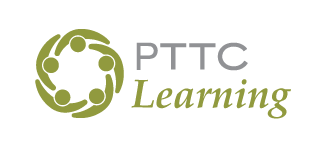Overview
Getting Ready for Sustainability Planning
This 7-week series offers participants a unique, interactive experience to explore how to develop a sustainability plan.
Sustainability planning is an intentional process of looking critically at your current prevention infrastructure, processes, and strategies to develop the necessary resources to sustain meaningful prevention outcomes beyond current funding. Sustainability planning involves a series of concrete tasks to create feasible, ongoing support for essential components of your prevention work. Elements of sustainability planning include examining the impact of strategic planning processes, such as SAMHSA’s Strategic Prevention Framework (SPF) and interventions, priority setting, resource and feasibility analysis, communication planning, and resource and grant development.
This learning series incorporates online consultation, skill-based learning and practice, self-study and reading assignments, group activities, and discussion designed to guide participants through five critical components of sustainability planning. Trainers will demonstrate how to use a set of tools to facilitate a sustainability process with community partners and will coach participants to set actionable steps and timelines to complete a plan over the next year.
When:
States & American Samoa:
Dates: March 19, 26 and April 2, 9, 16, 23, 30
Time: 3:00 PM – 4:30 PM Pacific
12:00 PM – 1:30 PM Hawaii
11:00 AM – 12:30 PM American Samoa
Pacific Jurisdictions:
Dates: March 20, 27, and April 3, 10, 17, 24, 1
Time: 10:00 AM – 11:30 AM Republic of the Marshall Islands
9:00 AM – 10:30 AM Pohnpei and Kosrae
8:00 AM – 9:30 AM Guam, Northern Mariana Islands, Chuuk, and Yap
7:00 AM – 8:30 AM Republic of Palau
Objectives:
- Apply a set of tools to create a sustainability plan with community partner
Audience:
- Community-level substance misuse prevention practitioners and community coalition coordinators located in the Pacific Southwest (HHS Region 9) states and jurisdictions of American Samoa, Arizona, California, Commonwealth of Northern Mariana Islands, Federated States of Micronesia, Guam, Hawaii, Nevada, Republic of Marshall Islands, and Republic of Palau.
- Prevention practitioners who would like to become a Certified Prevention Specialist or need to continuing hours of education to meet re-certification requirements.
- Please note: This training is reserved for prevention professionals working in HHS Region 9.
- Prevention professionals interested in this course but who work outside of HHS Region 9 are encouraged to contact their region’s PTTC to learn about similar courses available to them.
Participant Commitment and Expectations:
- If your experience with Zoom is limited or you want to review key features of Zoom, please view the 20-minute Introduction to Zoom video prior to the first session on Wednesday, March 19, 2025 on how to use and maximize the platform
- Participate in 7 sessions of training, for 1.5 hours on scheduled series days/times
- Complete up to ONE hour of independent learning activities between each session
- Use a web-camera and have access to appropriate technology to join the online videoconferencing platform (i.e., internet connection, built-in or USB webcam, desktop/laptop computer, built-in/USB/Bluetooth speakers & microphone)
- Actively engage and be on camera 90% of the time during each session, since this is not a webinar series and active participation is essential to gain/improve skills
Please Note:
This EPLS is not a webinar series. Active participation in each session is essential to gain and improve skills. If you cannot attend these sessions, you will forfeit your attendance.
The Pacific Southwest PTTC is committed to the safety of all participants. Driving while participating in these sessions is strongly discouraged, as it is seen as a danger to the participant. If driving cannot be avoided during your scheduled session for any reason, please contact the PTTC staff at pspttc-info@casat.org .
In addition, it is expected that participants will have access to the appropriate technology by Wednesday, March 19, 2025 in order to fully participate and be on camera at least 90% of the time.
If you have questions regarding technology requirements or registration details contact pttclearning@casat.org.
Certificates:
Participants who complete the entire course will receive a certificate of attendance for 17.5 hours. Partial credit will be considered if a participant completes over 80% of the course and submits completed prep packets to the course facilitator for review for any missed session. Participants will need to confirm with their certification board to determine if these certification hours are accepted towards their specific certification requirements.
To help make engagement more comfortable, we limit the number of people who can enroll in EPLS. If you cannot commit to joining the sessions or completing the prep-work packets, please defer this opportunity to others on our waiting list.
The Pacific Southwest PTTC is administered by CASAT at the University of Nevada, Reno.

